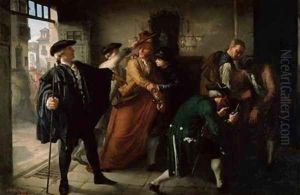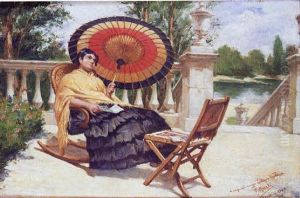Jose Marti y Monso Paintings
José Julián Martí Pérez, commonly known as José Martí, was a Cuban national hero and an important figure in Latin American literature. Born on January 28, 1842, in Havana, at the time part of the Spanish Empire, Martí became a symbol of Cuba's bid for independence against Spanish rule. He was also a poet, essayist, journalist, translator, professor, and publisher, recognized for his contributions to Latin American literature, particularly through his poetry and essays.
From an early age, Martí showed a passion for political freedom and independence. His early political activity, including his involvement in an attempt to overthrow Spanish colonial rule in Cuba, led to his arrest by the Spanish authorities when he was just sixteen years old. He was convicted and sentenced to hard labor, but his sentence was commuted to exile due to his young age and health issues. He spent much of his life in exile, traveling to various countries including Spain, Mexico, Guatemala, and the United States.
During his time in exile, Martí continued to advocate for Cuban independence and worked tirelessly to promote the cause. He was a prolific writer and used his writings to criticize colonial rule and to promote democracy and social justice. His essays and articles were published in numerous newspapers and journals throughout Latin America and the United States, earning him a reputation as a great thinker and orator.
Martí was also deeply involved in the planning and organization of the Cuban War of Independence, which began in 1895. He founded the Cuban Revolutionary Party and was a central figure in the coordination of the revolution from abroad. Tragically, shortly after he landed in Cuba to join the fight, José Martí was killed in battle at Dos Ríos on May 19, 1895. His death cemented his status as a martyr for Cuban independence and he is remembered as one of the most influential figures in Cuban history.
Beyond his political activities, Martí's literary contributions were significant. His seminal work 'Versos Sencillos' ('Simple Verses'), published in 1891, is celebrated for its emotional depth and lyrical beauty. His writings not only reflect his political views but also delve into themes of liberty, dignity, and the human condition. His work has been influential in shaping the Cuban identity and has had a lasting impact on literature throughout the Spanish-speaking world.
Although his life was cut short, José Martí's vision and literary works continue to inspire generations. Today, he is revered not only in Cuba but also internationally as a poet, a patriot, and a proponent of independence and freedom.

